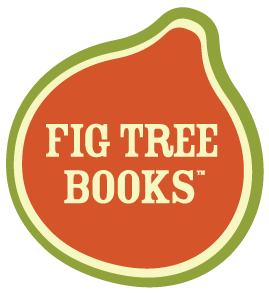February 20, 2014 by Yona Zeldis McDonough
Print is Dead
 Print is dead, or so the pundits have been telling us. And yet, in this electronic age when reading matter has been whittled down to fit on a smart phone, along comes Fig Tree Books, a brand new print publisher whose focus is the Jewish American experience. A blend of original titles and revered classics, Fig Tree is the brainchild of Fredric Price, a drug developer, and it will be launching in early 2015. Lilith’s fiction editor, Yona Zeldis McDonough, talks to Fig Tree senior editor Michelle Caplan about Fig Tree’s goals, ambitions and how this “nimble” imprint plans to take advantage of “the new normal.”
Print is dead, or so the pundits have been telling us. And yet, in this electronic age when reading matter has been whittled down to fit on a smart phone, along comes Fig Tree Books, a brand new print publisher whose focus is the Jewish American experience. A blend of original titles and revered classics, Fig Tree is the brainchild of Fredric Price, a drug developer, and it will be launching in early 2015. Lilith’s fiction editor, Yona Zeldis McDonough, talks to Fig Tree senior editor Michelle Caplan about Fig Tree’s goals, ambitions and how this “nimble” imprint plans to take advantage of “the new normal.”
YZM: Can you talk about the decision to start a new publishing company at a time whenever everyone is bemoaning the decline of print in general and books in particular?
MC: My publisher, Fredric Price, has had a successful entrepreneurial career developing drugs for rare diseases. While he has no professional background in publishing, he is an avid reader and has established two longstanding groups that read and discuss Jewish books and essays. He decided to focus his efforts toward creating the new home for the best fiction of the American Jewish experience. All of the changes that have occurred in publishing in the last several years create a window of opportunity for a small, focused, nimble imprint like Fig Tree Books. We can take advantage of the new normal because we do not have a pre-existing structure, organization or operating method that is struggling to adapt to the new publishing environment. Fred feels that the publishing industry is ripe for the same type of approach that he used when developing, marketing and selling “orphan” drugs. Rather than following the industry in trying to develop blockbuster drugs for highly visible illnesses like hypertension, he built very successful businesses by focusing on drugs for small populations. While Jews represent a small fraction of the American population, we are a significant percentage of the purchasers of literary fiction.
YZM: What drew you to this editorial position at Fig Tree?
MC: Fred has responded to the need for a publisher to champion emerging and unique voices and created a place where writers about the American Jewish experience can launch their work into the world with visible celebration and support. I have spent most of my career as a freelance editor, consultant and ghostwriter of fiction, creative non-fiction and film scripts. I’ve mentored both aspiring and established writers and I believe Fig Tree will be the home of American Jewish fiction writing for the 21st century. We will have a combination of original works plus what we call re-released classics, books that were previously published and are now out of print but are relevant and exciting to readers today.
YZM: What is the significance of the name Fig Tree?
MC: Our name is inspired by a letter from George Washington to the Hebrew Congregation in Newport, Rhode Island in 1790, in which he says “May the children of the Stock of Abraham, who dwell in this land, continue to merit and enjoy the good will of the other Inhabitants; while every one shall sit in safety under his own vine and fig tree, and there shall be none to make him afraid.” We feel that this event in American history captures the spirit of our democracy in which Jews and other previously religiously persecuted groups have flourished. The wisdom of our first president set the stage for a milieu of tolerance and acceptance, enabling Jews to thrive, and we could think of no better metaphor for the beneficence of the Jewish Experience in America.
YZM: Will there be any particular emphasis on writing by Jewish American women?
MC: We are interested in publishing novels of excellence that deal with the American Jewish experience and are agnostic as to an author’s gender, age, race and even religion. It is a rich mosaic that can be approached by anyone with a gift for writing and a topic that appeals both to Jews and others. We certainly do hope to attract beautifully written books by women writers. Our editorial staff is comprised of women with a keen eye for quality writing.
 Please wait...
Please wait...
Pingback: Jewish Literary Links for Shabbat | ErikaDreifus.com